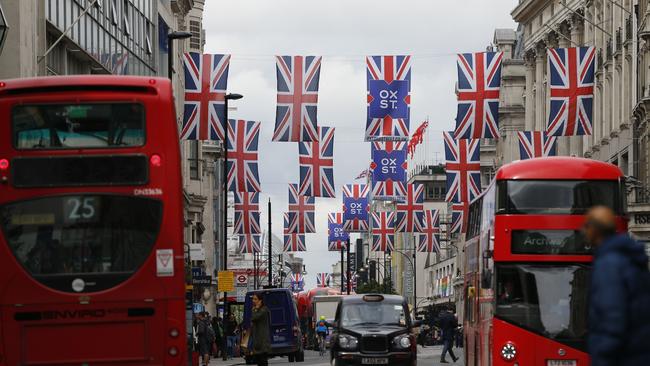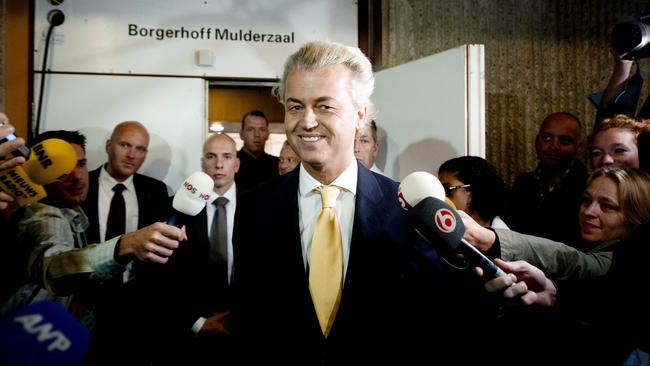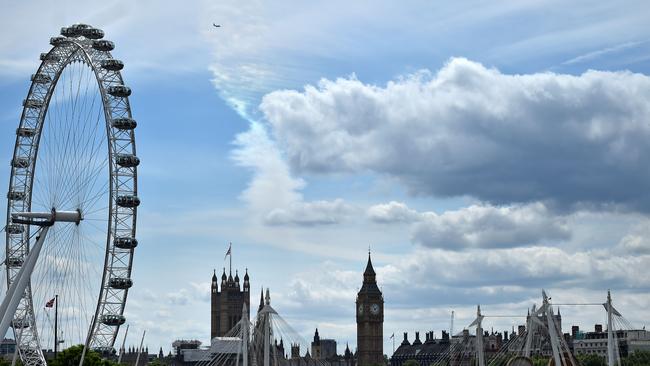European Union facing dilemma ahead of Brexit talks, warned against ‘punishing’ UK
WILL Europe let Britain go quietly, or make an example of it to scare other countries? This could go either way.

WILL Europe let the Brits go quietly, or will it make an example of them?
As European leaders prepare to meet in Brussels to begin addressing the challenges the bloc is facing after Britain’s vote to leave, that is the million-dollar question.
With the historic Brexit vote sparking a wave of calls for similar referendums by anti-EU political parties in countries including the Netherlands and France, there are fears EU leaders could move to “punish” Britain to prevent a domino effect.
Speaking on Sky News, far-right Dutch politician Geert Wilders, who immediately called for a “Nexit” vote in the wake of Friday’s shock result, warned that doing so would hurt the EU more than Britain.
“The europhiles were beaten by the British people, I hope that they are not seeking revenge,” he said. “I think that will not happen because they will hurt themselves maybe even more than they will hurt Britain.
“It’s a big economy, the third trading partner with countries like Germany and France — if you punish them you punish yourself, and the people are fed up with playing political games.”
In a note yesterday, Goldman Sachs spelt out why the EU might want to make things messy.

“[Even] if — or perhaps especially if — the UK economy holds up better than we expect, the political risks to the integrity of remainder of the European Union have grown significantly,” it said.
“Nationalist parties in other European countries — especially France, the Netherlands, and the Czech Republic — are already clamouring for referendums of their own.
“If Brexit proves less painful than expected, this might make Frexit, Nexit, or Czexit look more appealing. In turn, such campaigns could raise renewed questions about the future of the Euro area that might necessitate much more aggressive European Central Bank intervention.”
Vimal Gor, head of income and fixed interest at BT Investment Management, said there was a “very high likelihood” the UK would fall into recession this year as a result of the vote.
“But the key issue is how the Europeans handle the outcome,” he wrote on Tuesday.
“If Europe comes out on the offensive to make an example of Britain it will further lose the confidence of its people and the autocratic manner in which it acts may well backfire.
“As more Eurosceptic nations are emboldened to call for their own referendums the pendulum may well swing towards less rather than more integration.”

In a joint statement on Tuesday, the leaders of Germany, France and Italy said the European Union “must dedicate itself to the worries expressed by its citizens”.
The three leaders said that the EU is a success and that the bloc is indispensable in securing “the economic and social progress for our people, and to assert Europe’s role in the world”.
But German Chancellor Angela Merkel, French President Hollande and Italian Premier Matteo Renzi acknowledged that the EU can only advance if it is supported by its people.
The union and especially its policy makers in Brussels have often been criticised for being detached from ordinary people’s worries — a sentiment that has led to a strengthening of anti-EU movements in several of its member states.
Chancellor Angela Merkel has warned against hasty actions towards Britain, saying there was “no need to be particularly nasty in any way”, Sky News reported.
US Secretary of State John Kerry said while he regrets the outcome, the negotiations must not “cut the nose off to spite the face”.
Mr Kerry arrived in London on Monday after meeting top EU officials in Brussels. He urged the bloc’s leaders to be “responsible, sensitive, thoughtful and strategic” in upcoming talks with Britain.

Lithuania’s foreign minister, meanwhile, says the United Kingdom must clarify whether its decision to leave the European Union is “clear and final”, saying the current uncertainty is not only detrimental to financial markets but to millions of Europeans.
Speaking at the United Nations in New York, Linas Linkevicius said that if the decision is final, UK-EU talks should start without any artificial delays.
He said the UK could stay in the single market like Norway which pays large fees to the EU budget, it could follow Switzerland which has about 100 agreements with the EU in different fields, or it could negotiate a free trade treaty with the EU.
“Whatever outcome, damage will be huge,” Linkevicius said.
It came as members of the European trade alliance that Britain helped set up over a half-century ago say they’re open to letting the UK back in now it has voted to leave the European Union.
Ministers from the European Free Trade Association met Monday in Bern for a previously planned gathering, but Britain’s decision last week to leave the EU loomed large.
At a time when France actively blocked Britain from joining the EU’s predecessor, Britain helped create EFTA as an alternative. It left EFTA in 1972 to join the EU, but English remains the official working language of its four current members: Switzerland, Iceland, Lichtenstein and Norway.
EFTA leaders noted that Britain has many issues to work through, but Swiss President Johann Schneider-Ammann told reporters that its return would strengthen the association.



